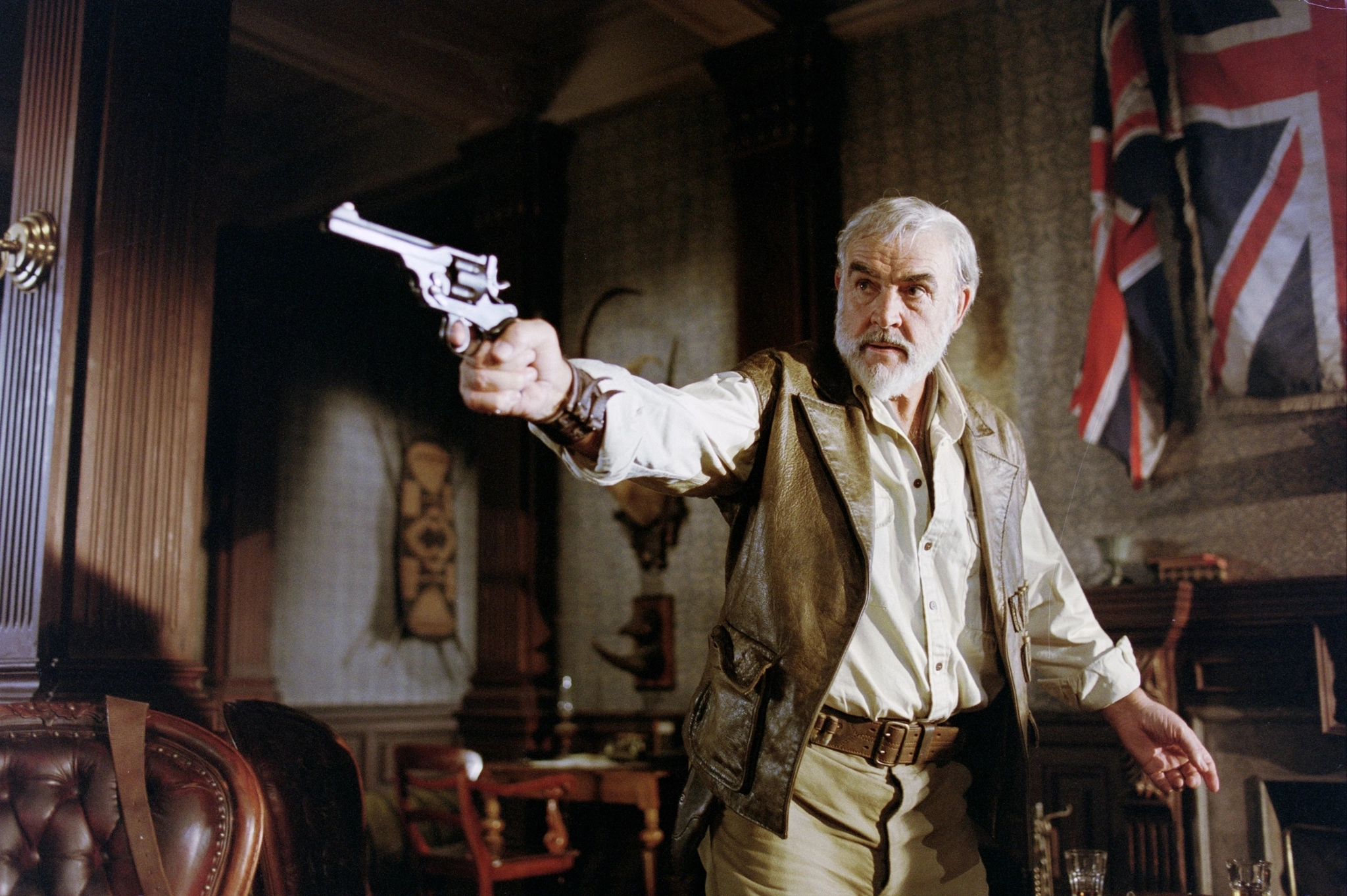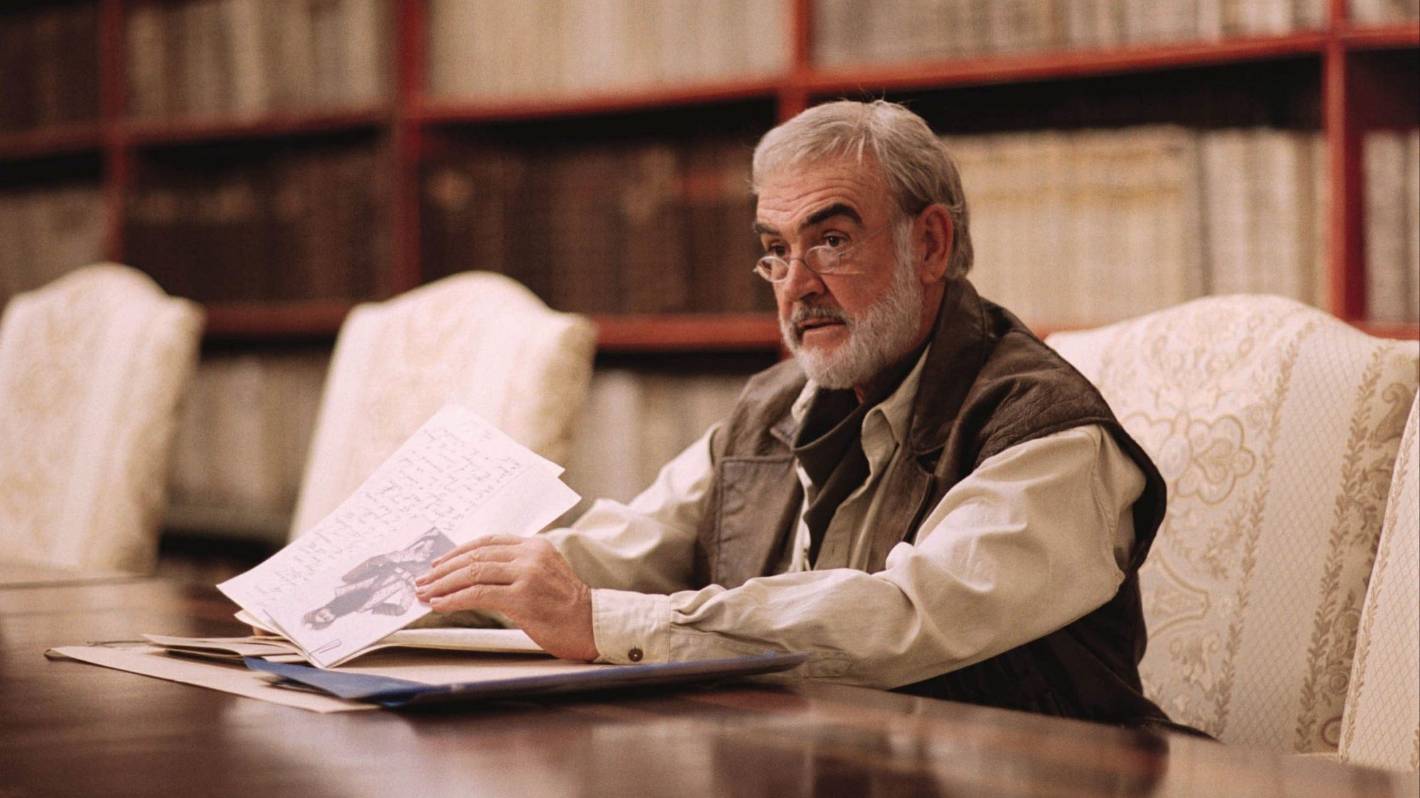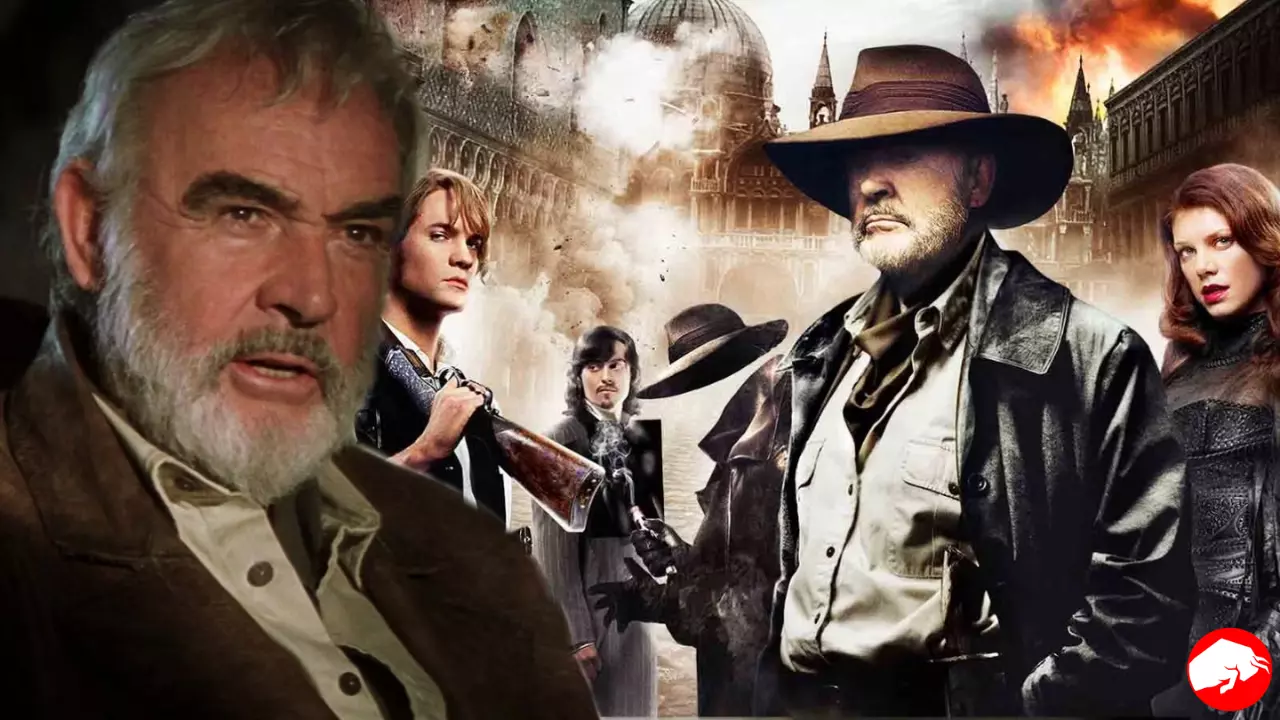For many cinema lovers, Sean Connery will always be James Bond, the charming, suave spy who set a high standard for every actor to follow in the iconic role. With a repertoire of diverse characters, including Jimmy Malone, Professor Henry Jones, and Major General Urquhart, Sean Connery earned a place among the stars. His versatility is matched only by his undeniable charisma. His illustrious journey was filled with high-profile roles and collaborations with Steven Spielberg, who once called him “one of only seven genuine movie stars today.”
However, not many venture into the last stop of this cinematic journey: his portrayal of Allan Quartermain in the critically panned adaptation of The League of Extraordinary Gentlemen. This was Connery’s swansong, a film plagued with conflict and mishap that led to his disillusionment with the industry he had given so much to. It’s a story of miscommunication, mishandled production, and a love for acting lost in the mire.
The Origins: How Did Sean Connery Find Himself in LXG?
The Enigmatic Allan Quartermain
The character of Allan Quartermain was a classic hero in the vein of the likes of Indiana Jones. A renowned explorer with a knack for adventure, Quartermain was born from the creative mind of H. Rider Haggard, widely recognized as the father of the adventure genre.

Sean Connery, who had become a screen legend as Indiana Jones’s father, seemed an apt choice for the role. However, the film wasn’t a direct adaptation of any of the Quartermain novels but a cinematic interpretation of Alan Moore’s comic book series. Moore’s version offered an intriguing blend of Victorian characters like Quartermain, Dorian Gray, and Mina Harker.
A String of Rejected Roles
The journey that led Sean Connery to this comic book adaptation had more to do with the roles he didn’t play than the ones he did. In three years, he had turned down the parts of Morpheus in The Matrix, Gandalf in The Lord of the Rings, and Dumbledore in Harry Potter and the Sorcerer’s Stone. Connery’s decision to pass on Gandalf proved costly. Reportedly, he was offered a whopping $30 million and 15 percent of the trilogy’s box office, which would have seen him pocket a staggering $450 million.
When Connery was offered the chance to step into the role of Quartermain, he decided to take it. Instead, what was supposed to be another successful outing for Connery became a source of regret.
The Nightmare Unfolds: A Production Plagued by Mishap and Conflict
The production of LXG was nothing short of a disaster. Beginning with a tight budget and the exit of key cast members like Monica Bellucci, the set was also devastated by torrential storms in Prague, causing a loss of $7 million. The production was fraught with tension and disagreements, the most infamous being between Connery and director Stephen Norrington.

Norrington’s creative differences and inability to handle the pressure of a big-budget film led to production shutdowns, including one instance over the disagreement about Connery’s prop gun. Tensions came to a head when Connery threatened to have Norrington fired, leading to an alleged fistfight. While the studio denied that the situation came to blows, it was clear that there was a deep divide between the actor and the director.
“The last one I did, [Norrington] was given $85 million to make a movie in Prague, but unfortunately he wasn’t certified before he started because he would have been arrested for insanity. So we worked as well as we could, and [I] ended up being heavily involved in the editing and trying to salvage [it].” — Sean Connery
By the time LXG premiered, Norrington had already announced his exit from Hollywood and was conspicuously absent from the premiere. When asked about the director, Connery had a cryptic reply:
“Check the local asylum.” — Sean Connery
The Aftermath: The End of Connery’s Cinematic Journey
Despite the turmoil and negative press, LXG managed to gross $179 million worldwide. However, the tumultuous experience had left its mark on Connery. In 2004, he walked away from a $17.5 million paycheck and a role in another 20th Century Fox film, Josiah’s Canon. The following year, he did lend his voice to James Bond for a video game, but he never acted on the big screen again.
Reflecting on his experience with LXG, Connery revealed that the bitter taste of this experience drove him away from acting.
“It was a nightmare. The experience had a great influence on me. It made me think about showbiz. I get fed up with dealing with idiots.” — Sean Connery
Even when approached by Spielberg for a part in Indiana Jones and the Kingdom of the Crystal Skull, Connery remained steadfast in his retirement.
“In the end, retirement is too damn much fun.” — Sean Connery
This marked the end of an era, an illustrious career in cinema that spanned decades and left behind a legacy that generations will cherish. However, The League of Extraordinary Gentlemen’s story is a stark reminder of the trials and tribulations that lurk behind the glitz and glamour of Hollywood and how a single film can, sometimes, change everything.









